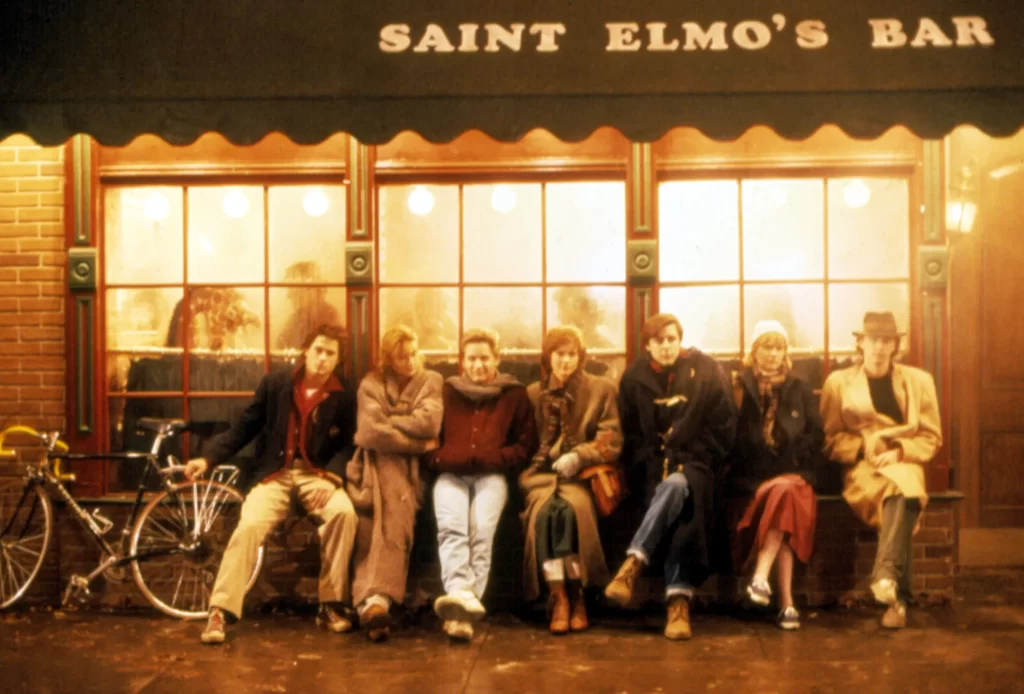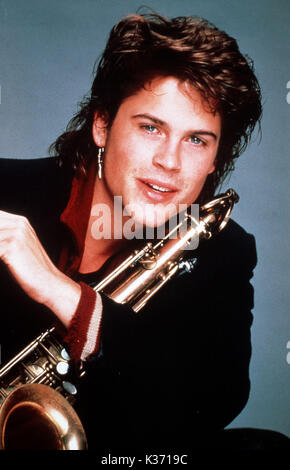
Once again the team at The Blue Mountain Review (led by the indefatigable Charles Clifford Brooks III) works magic, putting together another gorgeous issue crammed with first-rate content. This is hard work and they do it, every time, with aplomb. It’s always an honor to be published, but sometimes it’s even more of an honor, when you can include yourself in such esteemed company, all put together so dang professionally. I’m thrilled to see my extremely tongue-in-cheek poem “St. Elmo’s Fire” (which was drafted under the working title “I Nominate Rob Lowe as Billy Hicks saying Let’s Rock as the Whitest Moment of the ‘80s.”) appear in these pages. GEN X rules: only we are allowed to make fun of the 1980s. Enjoy in all its Brat Pack Glory.
St. Elmo’s Fire
First off, this was peak ‘80s, in that the ‘80s were
finally the ‘80s; not sad remnants of ‘70s hangovers—
domestic beer and shag carpets replaced by lack of shame.
Disco was dead and hair metal, God help us,
was ascendant, TV screens the size of PC monitors,
and, not unlike a movie, smoking on airplanes still a thing.
The actual horrors Reagan’s Revolution
not yet fully felt, at least by the types of people
flocking to see St. Elmo’s Fire in the summer of ’85.
And, this is important, irony was not
yet our default cultural setting; MTV
turning pallid lip-synchers into celebrities.
So, an actor like Rob Lowe could embrace
his Brat Pack prerogative as the pampered cad
who, we understood, was also a dreamer,
Because, of course, that’s how tortured geniuses
truly are; they drink and drug and lose jobs like it’s
a job, feeling the full weight of their white worlds.
Like a poor man’s Sisyphus with an 8 ball
on his back, trying to shake that shocked monkey
called accountability: this script needs a rewrite.
Only in 1985 could anyone with the final cut—
and so little common sense—decide an extended scene
of Billy blowing his sax signified that pretty boy pain.
The crowd, obviously, feeling his burden and luxuriating
In his brilliance, here was their own Lizard King,
incinerated, at last, in the bonfire of his vanity.
(This was a dark precursor to the truly ascendant
Cocktail, wherein a bar full of not-drunk-enough yuppies
are content to watch Tom Cruise throw bottles in the air.)
The cameras making love, and who could blame them,
to this impossibly mesmeric man-child who, mid-solo, claps
and says Let’s rock: the whitest moment of a very white decade.
Case closed, right? I mean, on a meta level this is the same film
in which the rebel from Breakfast Club becomes a Republican
and the male leads, arguably, are more comely than their counterparts.
But here’s where it gets ugly: maybe that’s one reason so few
of my friends (then; now) understand, much less appreciate jazz.
It’s scenes like this that make a Great White Mockery of Attainment.
We watch Kirby stalk an uninterested woman and it’s not sociopathy,
but a striver pulling himself up by his bootstraps, even if wingtips don’t
have straps, and Arthur Laffer (again, no irony) was taken seriously.
When Billy gets on that bus we know: it’s all going to work out
and if his wife and kid need to suffer for him to succeed, they will
all come out okay; and his inevitable redemption will have been earned.
This flick suggests what the decade signified: if we close our eyes
we’ll remember that Happy Endings aren’t free, but they’re possible
if you’re lucky to have parents—or producers—whose checks always clear.

